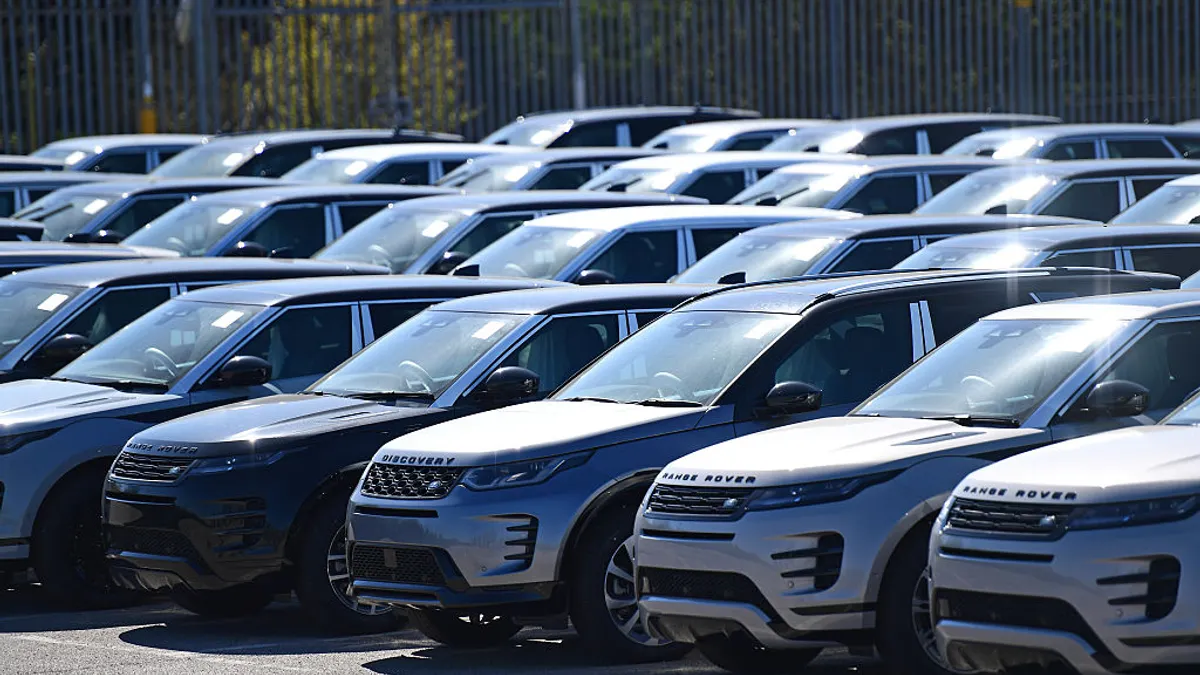After the election that will return Donald Trump to the White House, an unusual alliance has broken out among auto dealers who have been resisting the shift to electric vehicles, the EV-resistant public who don’t want their mobility options limited, and the No.1 EV seller in the U.S., Elon Musk.
All indications are that Trump, with counsel from Musk, who spent in excess of $130 million to support Trump’s election and is expected to play a role in advising Trump on reducing the size of the federal government, will eliminate the tailpipe emission targets automakers have to hit by producing and selling electric vehicles in the next decade, as well as the tax credits meant to help automakers sell EVs to the public during the transition.
Trump is also expected to pull the U.S. out of the Paris Climate Agreement as he did in his first administration. President Biden restored the U.S. participation.
Expect the Trump Admin. to also eliminate federal mandates meant to phase out semi-truck diesel engines in favor of hydrogen fuel cells and battery-powered trucks, and claw back federal investments in hydrogen production and distribution hubs. The support for EVs and hydrogen were big items in the bipartisan Infrastructure Investment and Jobs Act enacted in 2021.
Although executive orders cannot directly overturn a law, they can influence how it is administered. Trump is expected to issue executive orders directing agencies to deprioritize or limit the programs’ scope, impacting the effectiveness of the incentives. But it’s also possible that Republicans, with control of the House and Senate, could draft legislation to repeal the infrastructure law altogether and strand investments and projects already begun. Nineteen Republicans in the Senate voted for the law but would likely be willing to vote to repeal the tax credits.
Musk has several motivations to push for an end to federal support for EVs, and he is a known naysayer about hydrogen fuel cells.
Tesla is already an established leader in the EV market with significant brand recognition, advanced technology and extensive charging infrastructure. Ending subsidies would hurt newer competitors and legacy automakers more than Tesla, especially if they rely on incentives to compete on price. Without subsidies, Tesla’s advantages would be significant just as legacy automakers are making real progress on producing EVs profitably.
Tesla has been working toward profitability that do not depend on government incentives. Eliminating subsidies could demonstrate Tesla’s strength, which could enhance investor confidence and position Tesla as an enterprise that doesn’t rely on external supports.
Government incentives often come with regulations, reporting requirements and stipulations that can be complex and change with political shifts. Operating in a market without these supports could simplify Tesla’s business operations, allowing it to focus more on product innovation and global expansion without adapting to shifting U.S. policy.
Aside from lifting federal supports that help Tesla’s rivals more than they help Tesla, a Trump Department of Transportation and NHTSA could let Tesla’s self-driving technology proceed without further regulatory interference. NHTSA has conducted multiple investigations into Tesla's Autopilot and Full Self-Driving (FSD) systems. In October, the agency opened a probe into 2.4 million Tesla vehicles equipped with FSD software following reports of crashes, including a fatal incident, under reduced visibility conditions such as sun glare and fog. Musk has stared down these actions, insisting that real-world trial and error is necessary.
Besides Musk, Trump will be advised by newly elected Republican Sen. Bernie Moreno of Ohio, a former auto dealer who ran aggressively against EV mandates.
Auto executives have been saying for months that they would adapt to whoever won the election, knowing that EV and tailpipe emissions policy hung in the balance.
“Our job is to stay flexible, resilient and strategic when it comes to capital investments,” Bosch North America President Paul Thomas recently told Wards. “Certainly, consistency of policy is what the industry would like, but we’ll have to deal with the realities as presented to us.”
EVs “have become a political football and that’s a shame,” Ford CEO Jim Farley said in late 2023 when Trump was expressing his disdain for EVs as a threat to the auto industry.
And expect these EV policy rollbacks to happen at a time when many dealers, at first hostile to EVs, have accepted them as sales have climbed. Cadillac Marketing Director Brad Franz recently told WardsAuto at the reveal of a new Cadillac EV the tide has been turning. “A lot of that initial resistance has gone away,” Franz said. “We have been seeing dealers doing a lot to attract EV buyers in their markets.”
As far as auto companies are concerned, their strategic plans and investments are not only subject to federal regulation. California has mandates that will continue no matter what federal regulations dictate or roll back. About a dozen other states have patterned their emissions regulations after California’s.
California Gov. Gavin Newsom said publicly before the election that his state will continue “maintaining leadership” in pollution reduction and promoting EV and hydrogen power regardless of whether Trump is elected president. “I don’t care what Trump says or does,” Newsom said. “We’re going to be that anchor, regardless of the prevailing winds in Washington, D.C.”
About the Author
David Kiley is an award winning journalist. Prior to joining WardsAuto, Kiley held senior editorial posts at USA Today, Businessweek, AOL Autos/Autoblog and Adweek, as well as being a contributor to Forbes, Fortune, Popular Mechanics and more.



















